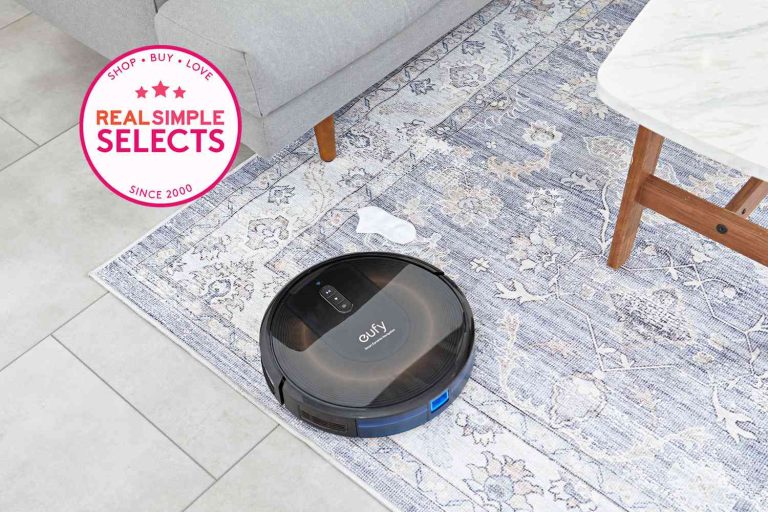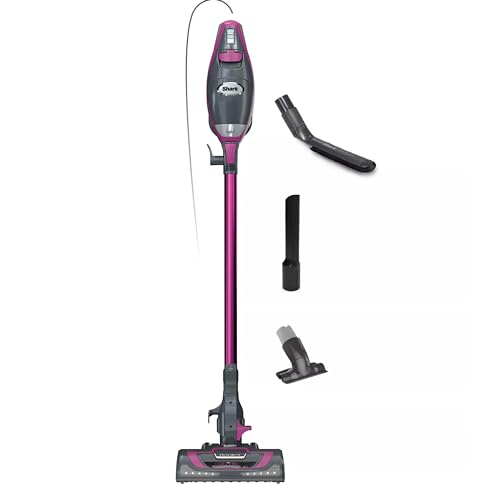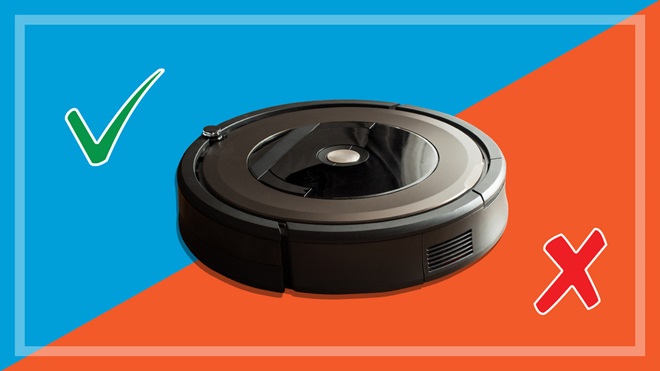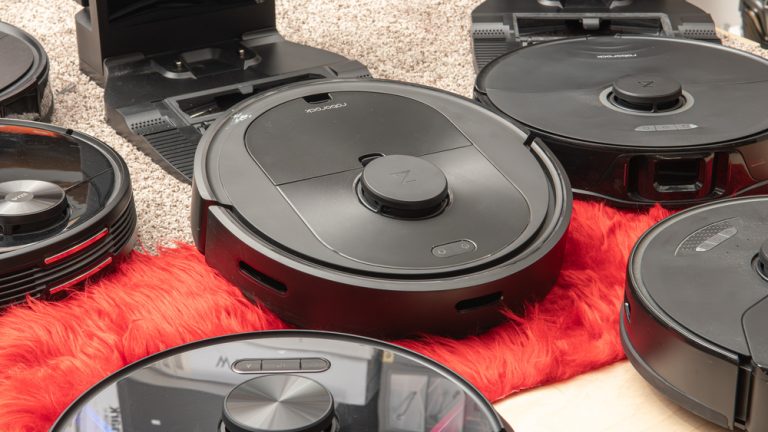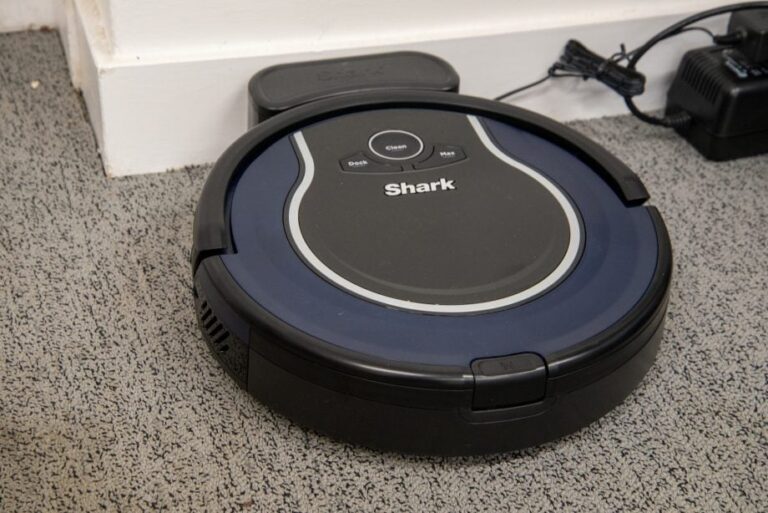Are Robot Vacuums Noisy
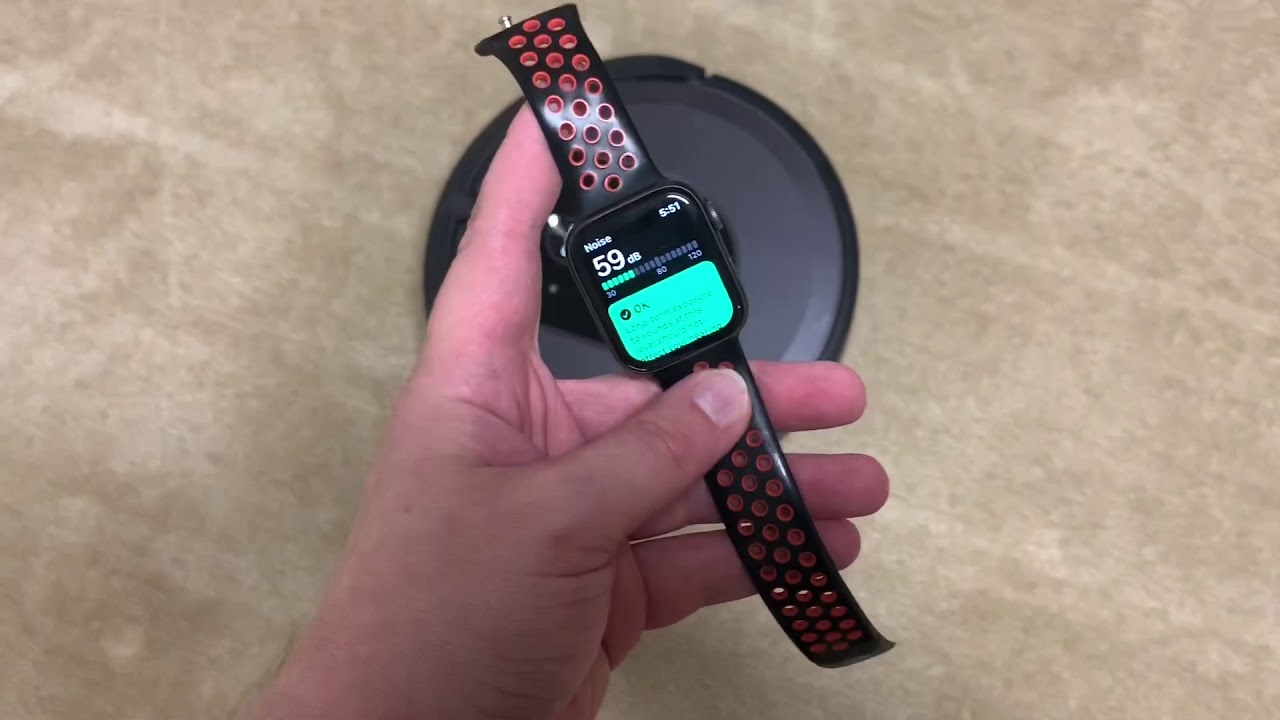
Robot vacuums vary in noise level, with some models as quiet as 55 dB and others as loud as 80 dB. Noise levels depend on the vacuum’s design, suction power, and cleaning mode.
Robot vacuums have revolutionized home cleaning by offering automation and convenience. Their noise levels can be a consideration for consumers looking to maintain a peaceful environment while keeping their floors clean. These smart devices range from whisper-quiet models perfect for noise-sensitive spaces to more robust options that may be noticeable during operation but offer powerful cleaning capabilities.
Users can typically find a robot vacuum that balances cleaning efficiency with noise control, ensuring a well-kept home without significant disruption. With advancements in technology, newer models tend to focus on reducing noise without compromising on suction strength, making them suitable for use during various times of the day. It’s important for potential buyers to compare noise levels alongside other features to choose the right robot vacuum for their needs.
Introduction To Robot Vacuums
Robot vacuums are smart cleaning devices for homes. These gadgets work on their own to clean your floors. They come in different shapes and sizes. Most robot vacuums are round, but some have a D-shape for edges and corners. They navigate around your home using sensors. Sensors help them avoid obstacles like furniture.
Using a robot vacuum can save you time. They can clean your home while you do other things. They are also very handy for people with busy lives. Some robot vacuums can even be controlled with a smartphone. It’s like having a tiny helper at home.
| Feature | Benefit |
|---|---|
| Automatic Charging | They charge themselves, so always ready to clean. |
| Scheduled Cleaning | Clean your home even when you are not there. |
| Various Cleaning Modes | They can handle different floor types and dirt levels. |
Assessing The Noise Level Of Robot Vacuums
The noise level of robot vacuums can vary. The design and technology used are key. Motor size, airflow structure, and brushes impact noise. Some models are quieter than others, aiming for less disruption.
When we compare, robot vacuums can be quieter than traditional ones. Yet, this is not always true. Some traditional vacuums are also designed for low noise.
Understanding decibels helps us know the loudness. Decibels (dB) measure sound. A whisper is about 30 dB. A normal talk is close to 60 dB. Most robot vacuums range from 50 to 70 dB. Less than 70 dB is seen as good for indoor noise.
The User Experience With Noise In Robot Vacuums
Robot vacuums can create varied levels of noise, often measured in decibels (dB). Families find some models disturbingly loud, while others are surprisingly quiet. The noise can interrupt conversations, tv watching, or work from home scenarios. Particularly, hard surfaces can amplify sounds, unlike carpets.
Pets may react differently; some get scared, while others may be indifferent. It’s crucial to select a robot vacuum considering its noise level if pets or small children are at home.
Manufacturers are constantly refining designs to minimize noise. They use advanced brushless motors and make changes to the fan and wheel design. Some brands have special quiet modes, which can be helpful during nighttime cleaning sessions or when peace is needed at home.
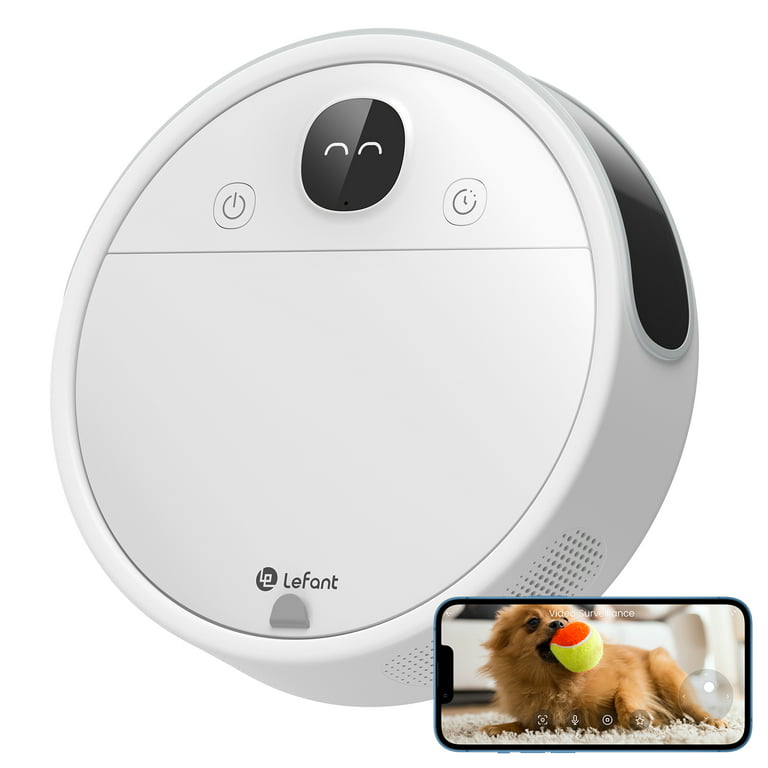
Credit: www.walmart.com
Quiet Operation: Features And Innovations
Recent technological advances have made robot vacuums much quieter. Dual-motor technology allows these machines to clean effectively while reducing noise levels. Manufacturers integrate noise-isolating materials to dampen the sound even further. Some models boast silent operation modes designed for minimal disturbance.
Exploring the market-leading quiet models reveals brands like Roomba and Eufy leading the pack. These vacuums often include brushless motors and optimized airflow patterns. Such innovations contribute to their hushed operation.
The costs associated with quieter robot vacuums can reflect the advanced features they offer. Buyers might pay more for models that promise a tranquil environment. The trade-off often involves balancing a desire for quiet with the vacuum’s cleaning prowess and price.
Choosing The Right Robot Vacuum For Your Needs
Selecting a quiet robot vacuum is key for a peaceful home. Check each product’s noise level, given in decibels (dB), before buying. Lower decibel numbers mean less noise. Consider your home’s size and floors, as larger spaces may require a more powerful, possibly louder, vacuum. For noise-sensitive individuals or pets, choose vacuums with noise reduction features.
Soft surfaces like carpet can lower noise compared to hard floors. Run vacuums during the day to disturb fewer people. Regular maintenance keeps the vacuum quiet.
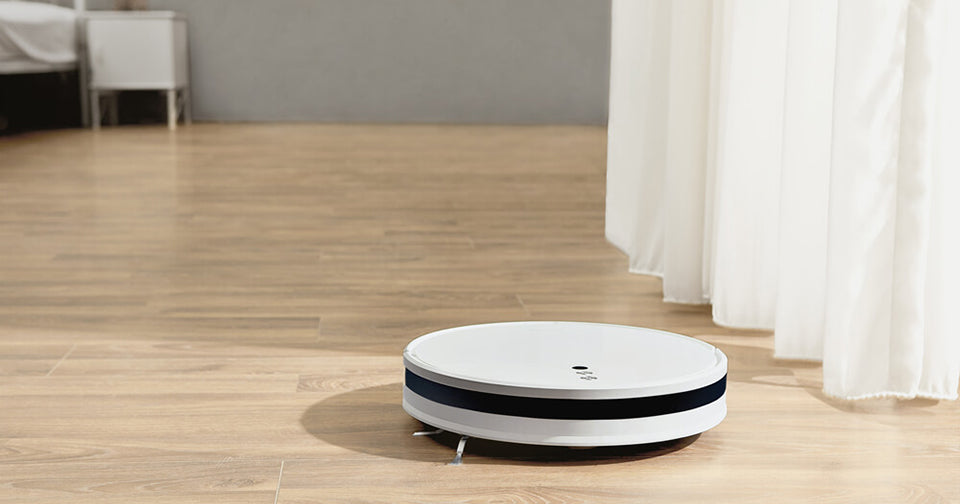
Credit: global.dreametech.com
The Future Of Robot Vacuums And Noise Mitigation
Noise reduction in robot vacuums is gaining traction. Manufacturers are incorporating advanced technologies to make these devices quieter. Future models predict significant drops in noise levels, thanks to innovations in motor efficiency and airflow dynamics…
Consumers express a clear preference for lower noise appliances. This loud and clear message is steering the research and development of upcoming robot vacuums. With consumer preferences at the forefront, the journey towards silent cleaning companions is well underway.
Frequently Asked Questions Of Are Robot Vacuums Noisy
Do Robot Vacuums Make A Lot Of Noise?
Robot vacuums typically produce noise levels around 60-70 decibels, similar to a conversation’s volume. They are quieter than traditional vacuums.
What Are The Disadvantages Of Robot Vacuums?
Robot vacuums can struggle with thick carpets and high thresholds. They require regular maintenance, such as emptying the dustbin and cleaning brushes. Limited battery life may affect cleaning efficiency, and they may miss spots or become stuck in certain areas.
Is There A Quiet Robot Vacuum?
Yes, various manufacturers offer quiet robot vacuums, with sound levels around 50-60 decibels, similar to a moderate conversation.
Conclusion
Navigating the world of home automation needn’t be a noisy affair. Robot vacuums, with their varied decibel levels, offer choices for every preference. Peaceful cleaning is within reach, ensuring a tidy home doesn’t come at the price of tranquility. Embrace the quiet revolution of cleaning – a robot vacuum could be your silent ally.
